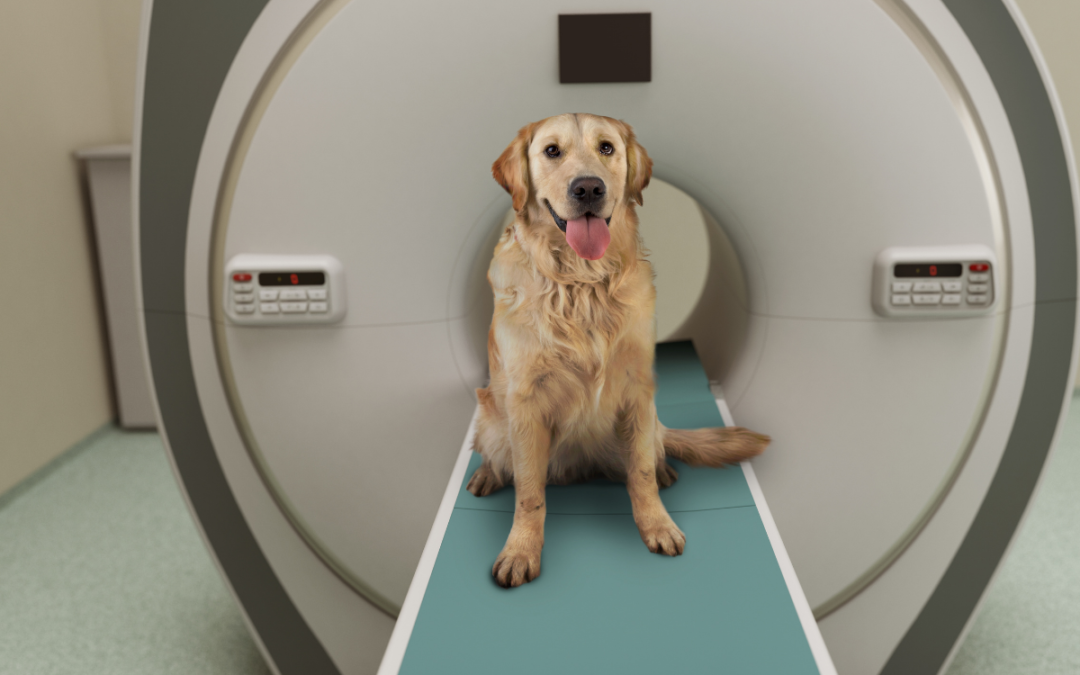Seizures, also known as convulsions, are a common neurological problem seen in dogs and, less frequently, in cats. Common or not, though, seizures in furry friends can be distressing for pet owners to witness. Knowing the cause and what to do if your pet has a seizure can make the situation a bit less stressful.
What Is a Seizure?
A seizure is a sudden surge in the electrical activity of the brain, which causes the body to shake, tremble, twitch, or convulse. The pet may lose consciousness, thrash around, or only shake a bit, depending on the type of seizure. (More on that below.) Although frightening to watch, seizures are not normally painful for your pet.
Epilepsy is a term used to describe repeated seizures. With epilepsy, seizures may occur infrequently, in clusters, or at regular intervals. Seizures may be caused by underlying intracranial disease (such as a tumor, inflammation, or trauma), extracranial disease (such as low blood glucose, electrolyte abnormalities, endocrine disease), or there may be no detectable cause, otherwise known as idiopathic epilepsy. Idiopathic epilepsy is suspected to be an inherited disorder in dogs, most commonly seen in Australian Shepherds, Beagles, Belgian Tervurens, Border Collies, Collies, German Shepherds, and Labrador Retrievers, although any breed can develop this condition.
Types of Seizures
There are 3 basic types of seizures:
- Generalized or grand-mal seizures: The most common form of seizures in dogs, these involve convulsions and loss of consciousness and can last from several seconds to several minutes. All parts of the brain are affected.
- Focal or partial seizures: These occur in only one part of the brain, resulting in a seizure only observed in one part of the pet’s body. These can last only a few seconds but can turn into a generalized seizure.
- Psychomotor seizures: These can last several minutes and are observed as strange behavior, such as your pet suddenly attacking its tail or an unseen object. This type of seizure can be difficult to detect, although your pet will do the same motor sequence in every episode.
What Causes Seizures?
In pets, diseases that affect the brain directly and conditions that affect other body systems, such as the liver and kidneys, can cause seizures. Sometimes, the cause is unknown.
Some common causes include:
- Idiopathic epilepsy
- Ingested poisons, such as chocolate or rat poison
- Heat exhaustion
- Brain tumors
- Brain inflammation (encephalitis)
- Diabetes/low blood sugar levels
- Infectious diseases, such as canine distemper virus and rabies
- Liver disease
- Head injury/trauma
- Nutritional imbalances, such as thiamine deficiency
- Strokes
Treatment for Seizures
If your pet has a brief seizure then quickly recovers, it is important to contact your primary veterinarian right away. They may ask you to bring your pet in, or they may make a note in your pet’s medical record and ask that you bring them in if it happens again.
If you suspect your pet has ingested a toxic substance or poison, if your pet continues to seizure for more than 3 minutes, has more than two seizures in a 24-hour period, or if your pet has more than one seizure in a row without regaining consciousness, it’s an emergency. Please bring your pet to your primary care veterinarian right away, or contact us 24/7 so that we may begin any necessary treatments right away.
Your primary care veterinarian may also refer you to our board-certified veterinary neurologist, Allison Cowan, DVM, DACVIM (Neurology). Veterinary neurologists have specialized training and knowledge in the treatment of complex and complicated neurologic disorders, as well as training in and access to specialized diagnostic tools to look at specific causes of seizures in pets. Some of these tools include:
- Magnetic Resonance Imaging (MRI)
- Computed Tomography (CT Scan)
- Spinal Fluid analysis (CSF tap)
An accurate and complete diagnosis is important to provide appropriate and effective treatment for your pet’s seizures. Once a diagnosis has been made, we will work closely with your pet’s primary care veterinarian to provide treatment and ongoing care.
If you have questions about seizures in pets, please don’t hesitate to contact us.

